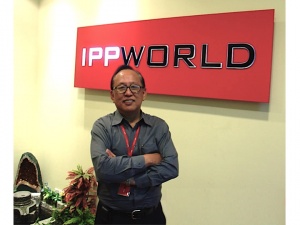Art of Information Globalization Across Cultures
 Henry Fu
Henry Fu Henry Fu’s interest in content localization began in 1986 when he was the country manager of Interlingua Language Services, then the world’s largest translation service provider. Three years later he founded a publishing company that won licenses to localize Joe Weider’s ‘Muscle & Fitness’ magazines into Asian languages. Then in 1994 Henry founded IPPWORLD, with a vision to offer top quality translation solutions for businesses engaging in cross-cultural diversifications. His management team was quick to develop unique processes in human capital management and necessary technical competencies in localization of multimedia information for markets in their respective native languages. IPPWORLD’s growth took off in 2001 with the advent of Internet and digital content technologies. Its emergence from a ‘brick-and-mortar’ to a ‘technology-dependent service provider resulted in processes becoming more productive and deliveries more predictable.
Henry said, “The company’s rapid progress stems from an organizational culture that embraces team dynamics, innovativeness and uncompromising customer services. We have policies in skills impartment and knowledge sharing, as well as MBO (management-by-objective) and leadership principles. Every business day is a new challenge as no two solutions are alike. We believe that to stay competitive, one has to be open and proactive with clients, be unassuming to details and to constantly provide a thriving environment for employees and associate partners alike. Our teams are all trained project specialists that deliver a combination of developmental as well as consulting solutions, while focusing on complementary and eclectic approach strategies that best suit the client’s content marketing objective and expectations”.
What Should Be Considered In Global Marketing Content?
Henry says, “What works in one country may not necessarily work in another. Having succinct information and instructions specific for each market are vital concerns. Companies that embark on global initiatives simply by duplicating domestically proven strategies will likely meet with onerous results, quite many were left frustrated. We have seen media campaigns turning out to be culturally affronting or stepping on antecedents that should best have been avoided. In creating content to support global marketing, it requires insights into respective country’s ethnicity and colloquialism, and to be conscious of the vernacular that each target market is accustom to. For example, business information must undergo transformational changes to suit the milieu of their target audiences - in some ways to be promoting a new entity. Business managers too, would need to be adequately oriented on cultural perspectives and social mores, and to know what inspires the locals and how to earn their respect”.
Henry further adds, “I can say Asian managers are likely to relate better with the locals in China, Indonesia, Japan or Korea as they possess common psychological and sociological traits, some even sharing similar cultural or religious practices. Even then, it requires its learning curve. Our company experienced its share of frustration when we first established a branch in Shanghai in 2004. We terminated a manager who did not perform to expectation. The employee lodged a complaint and we were summoned to attend a labor tribunal. Though we clearly knew we had not erred, it was an arbitrary decision. In spite of having a detailed written contract, we ended up having to pay partial compensation to the terminated employee. Some time later I met with a Chinese lawyer who even joked that the western legal system was not recognized in China.”
On The Future?
Henry has this to say, “Globalization is not just about growing one’s business in other countries but also having to deal with foreign competitors in one’s own backyard. FTAs will continue to remove trade barriers and eliminate differentiators in a product’s country-of-origin. Brands will be locally produced and equally identifiable to their native audiences. With proliferations in web and digital technologies, buyers and sellers between traditional and non-traditional markets will be communicating and transacting ‘live’ around the world, almost anywhere and at any time. We see greater shifts toward appreciating the complexities in linguistics and the cultural factors at play - the sort of West meets East, the wide range of content management platforms that will be available, and every LSP (Language Service Provider) having to deal with a broader spectrum of transnational as well as cross-border language combinations. Looking ahead, I can say for sure that the opportunities will be plentiful but will be even more challenging. I see our company capitalizing on content localization tools and unique skill-sets to continue our support, especially for clients marketing in new economic zones, such as the Mekong Subregion, Africa, Eastern Europe etc., as well as in assisting clients operating in matured markets.”
 On what drives and motivates him, Henry smiles and says, “Thirst for knowledge and perfection - they’re never ending
On what drives and motivates him, Henry smiles and says, “Thirst for knowledge and perfection - they’re never ending
Henry seated center. Photographed in 1986
Editor’s Notes: IPPWORLD offers transcreation (translations infused with creative writing) as well as administration of CMS with localized language contents. IPPWORLD is contracted by hotel and hospitality establishments, has collaborative relationships with several media practitioners and gaining global recognition as a boutique agency for specialty translation services.
www.IPPWORLD.com

